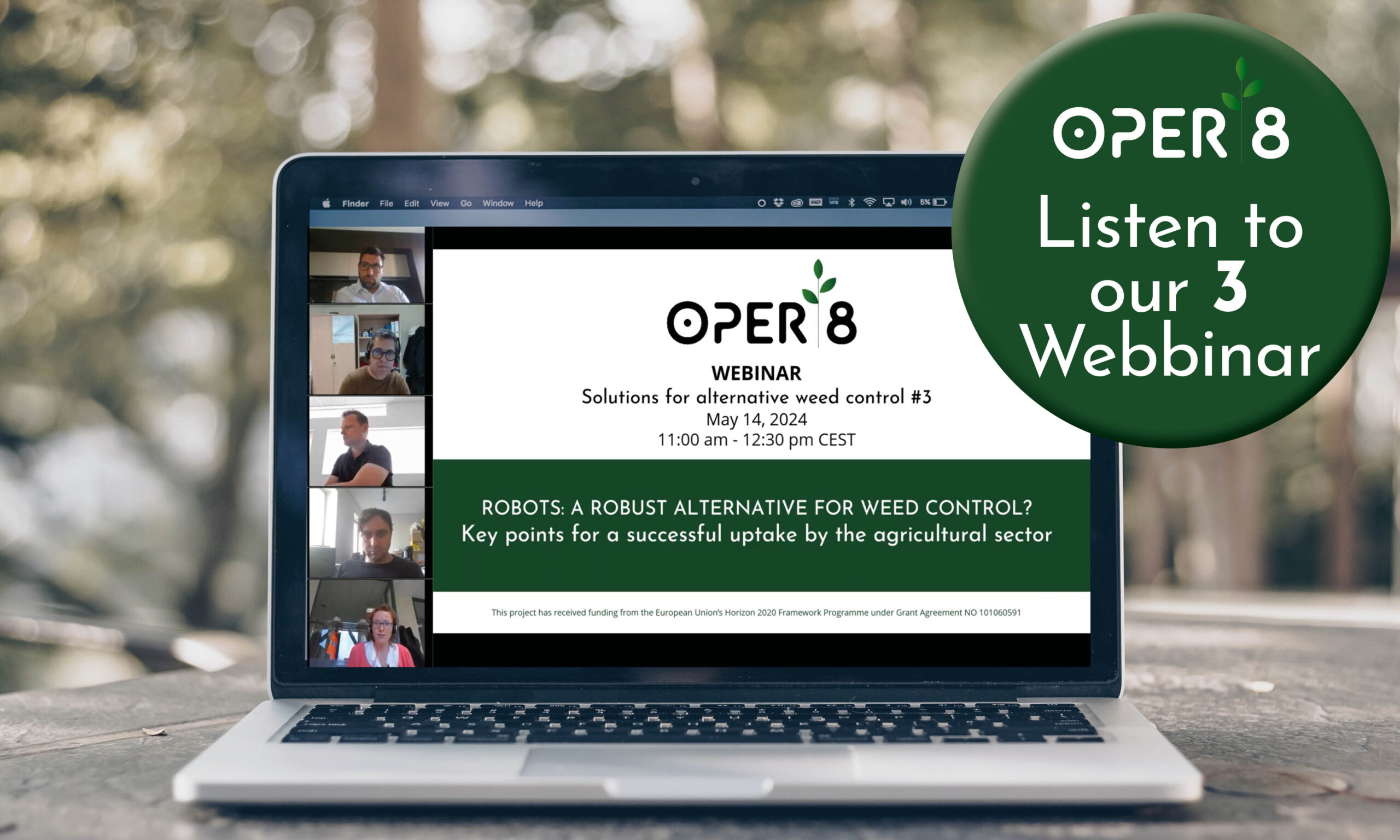Welcome to see and listen to our webinar where we have focus on non-chemical weed control solutions.
The Oper8 project draws upon the expertise of eight Operational Groups (OGs) in seven countries, with the aim of fostering collaboration, knowledge exchange and innovation. To this end, three webinars have been held during the first half of the project’s lifespan. Enjoy!
Webinar #1
Webinar #2
The second webinar, held in October 2023, continued facilitating cross-border knowledge exchange among EU partners. Titled “Cover Crops Use Across Europe,” it examined the needs, gaps, and barriers in using cover crops, agronomic strategies for their introduction in various cropping systems, and their role in weed management and ecosystem services.
It also covered strategies for integrating cover crops into winegrowing, machines for managing cover crops, and practical experiences and innovations across Europe.
The webinar attracted 100 participants, including the same target audience as the first webinar.
Webinar #3
The third webinar, held in May 2024, titled “Robots: A Robust Alternative for Weed Control?” explored robotic technology in agricultural weed management. It highlighted technological advances that led to autonomous robots capable of identifying and eliminating weeds, reducing the need for chemical herbicides. The ecological benefits, such as reduced chemical use and soil disturbance, and long-term cost-effectiveness were discussed.
The webinar featured case studies of successful robot implementations in various crops and ongoing research to enhance precision and reliability. Challenges and future developments, including AI and machine learning integration, were also covered.
Approximately 100 attendees participated.
Follow us in social media or subscribe on our Newsletter to get latest news.




